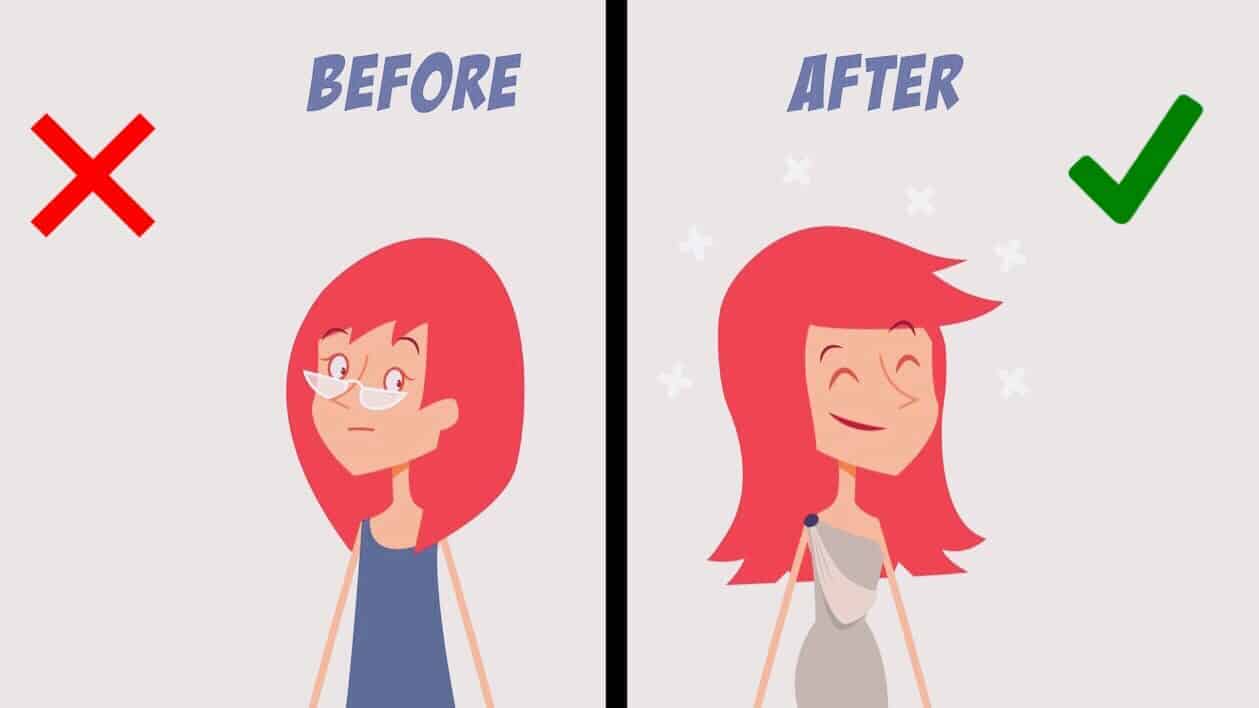Scientific research suggests that all of us are born with a certain innate level of happiness. What this means is that others are born, well, “less happy” than others.
So give the grumpy guy or gal in your life a break! The good news is that there are scientifically validated ways to make you a happier person!
“Folks are usually about as happy as they make their minds up to be.” ~Abraham Lincoln
Let’s dig in!
Here are 10 things that can make you happy:
#1 Meditation is best for overall happiness.
Yes, meditation is numero uno for a reason!
Shawn Achor, the author of The Happiness Advantage, says:
“Studies show that in the minutes right after meditating, we experience feelings of calm and contentment, as well as heightened awareness and empathy. And, research even shows that regular meditation can permanently rewire the brain to raise levels of happiness.”
In a study undertaken by researchers from Massachusetts General Hospital, scientists compared the before and after brain scans of individuals who participated in an eight-week course on mindfulness meditation. After completing the course, the 16-person group showed considerable growth in the brain regions linked to self-awareness and compassion.
#2 Shorten your commute.
If able, you should consider moving closer to your workplace. Or maybe finding a new place to work. Really.
Also, you can forget about that better-paying job “compensating” for that long trek to work. Scientists say it doesn’t.
In a study conducted by Swiss economists, commuting’s cumulative negative effect outweighs the benefits, such as “having a bigger house or a better job.”
Perhaps Harvard psychologist Daniel Gilbert said it best: “Driving in traffic is a different kind of hell every day.”
#3 Help others – just read this.
In our consumer-driven culture, everything revolves around “me, me, me.” That’s why it may seem counterintuitive that the most successful, happiest people are often the most generous.
Adam Grant, a professor at the University of Pennsylvania’s Wharton School of Business, recommends one of his favorite techniques, the “Five-Minute Favor”:
“What if I just took a couple minutes every day to try to help someone in a way that it’s a small commitment to me, but could be of large benefit to them?”
#4 Forget the latest gizmo. Buy yourself some time.
In a joint study by researchers from Harvard Business School and the University of British Columbia, scientists discovered that using funds to purchase time leads to more happiness than purchasing ‘stuff.’
The dual team surveyed more than 6,000 people from Canada, Denmark, the Netherlands, and the United States. The survey comprised two simple questions: How much money do you spend each month to increase your free time? How many times per month?
People who spent more than the average more frequently reported the highest life satisfaction.
Also, the amount of income the participants earned did not influence the results.
#5 Get enough sleep. You’ll be less grumpy.
Okay, so you probably knew this one already!
But check this study out:
“In one experiment…sleep-deprived college students tried to memorize a list of words. They could remember 81% of the words with a negative connotation, like “cancer.” But they could remember only 31% of the words with positive or neutral connotations, like “sunshine” or “basket.”
Some scientists posit that sleep deprivation targets the hippocampus, which is responsible for processing positive or neutral memories, is responsible for such effects.
#6 Take 30 seconds.
Do you see someone struggling with something that you can help with? Maybe it’s who looks as if they may need a hand with something.
Science shows that taking as little as 30 seconds to help someone will instantly flood your brain with feel-good chemicals – and set you up for a great rest of the day!
#7 Practice the power of gratitude.
Brene Brown, Ph.D., says, “In 12 years of research, I have never interviewed a single person with the capacity to really experience joy who does not actively practice gratitude.”
Those who engage in a regular gratitude practice (mine is closing my eyes and picturing the smiling faces of three loved ones) report:
– feeling happier and less depressed
– having better sleep quality
– being more likely to engage in healthy behaviors, such as exercise
 #8 Embrace adversity – and learn its valuable lessons.
#8 Embrace adversity – and learn its valuable lessons.
People who’ve experienced adversity in their life are happier overall than those who haven’t. According to research, the perspective gained following periods of trial benefits us by:
– shaping and reinforcing our identity
– coping better with current and future stressors
– increasing our resilience
– making us more optimistic about the future.
So, the next time you meet an obstacle – blast through that sucker!
#9 Understand what constitutes happiness
According to science, happiness is a combination of two things: how satisfied you are with your life and how good you feel on a day-to-day basis.
Contrary to popular belief, we adapt to our circumstances over time, so they don’t play much of a role in our overall happiness levels. (The only exception, apparently, is commuting!)
Also, about 50% of happiness is genetically determined, actions, behaviors, and thoughts control 40%, and your circumstances determine just 10%!
This is some empowering knowledge – and might be a good reason to pause and reflect on our life.
#10 Happiness can be hardwired – so do it!
Forget the percentages for now. If you’re willing to devote some time and put forth the effort in implementing some of these recommendations, you can will your way to being a happier person.
Happiness isn’t feeling “smiley” all of the time; it isn’t having all the money in the world or refusing to see the troubles that are out there. Happiness is contentment. Happiness is satisfaction.
Also, happiness is your birthright–you deserve it. Claim the happy life that is yours for the taking!















